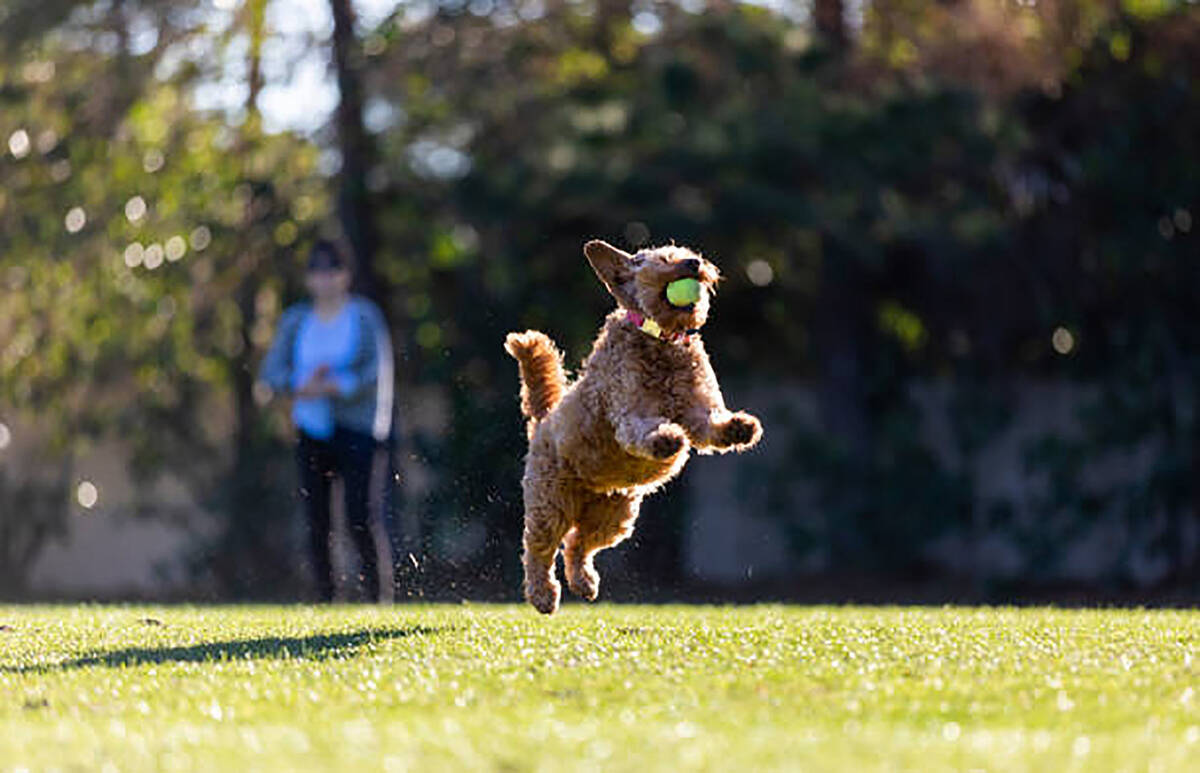Council tees up multiple pet issues
Long-running issues involving pets in Boulder City are about to heat up again as three resolutions were introduced at this Tuesday’s council meeting. Resolutions have to be introduced in a meeting prior to them being discussed or voted on. These resolutions are scheduled to be discussed and acted upon in the council’s Feb. 25 meeting.
These issues have been bubbling up regularly in council meetings since June of 2023 and the most contentious of them has been a subject of debate since the 1980s.
Civil vs. criminal
This is the simplest of the issues being introduced. Since the state legislative session of 2021, there has been a concerted push to decriminalize minor offenses. Moving pet-oriented offenses including violations related to mandatory spaying and neutering, at-large animals and licensing from criminal to civil will put the city in line with most other jurisdictions in the state.
While the term used is “decriminalization,” making this move would actually make enforcement easier as the standard for a civil citation is much lower than what is needed to file a criminal charge. The proposed change would follow the same process as existing procedure for traffic tickets. A cited person would have 90 days to request a hearing to contest the citation. If no hearing is requested, the civil fine would be due and payable.
Microchipping
The amendment to current city law regarding microchipping would make a minor adjustment to the current law, which says that pets must either be microchipped or wear an ID tag, at the owner’s discretion. Back in November, two options were presented. 1) Require all pets to be microchipped or 2) Require that, if a pet ends up in the shelter, having a chip implanted was one of the terms for its release. A microchip will also be required for adoption but that is already being done so is not an actual change in current practice.
In past conversations, Councilman Steve Walton has expressed a reluctance to “over-regulate” and did not support mandatory microchipping. But in November, citing the well-publicized overcrowding at the shelter, he said he had changed his mind.
“I think we then talk about microchipping, what’s the bottom line, right?” he asked. “I’m coming to the conclusion that the bottom line is to make sure we get pets back to owners and to keep them out of the shelter, right, and to not contribute to the additional overpopulation of our shelter.”
“I can support microchipping all of our domesticated animals for those bottom-line reasons,” he said. “Really, the bottom line, the real issue, is keeping those pets out of our shelter and returning them to the owners ASAP. Is that over-regulating? I don’t know. But I’m OK going with that balance because of the conditions in our shelter.”
At least two members of the council, Mayor Pro Tempore Sherri Jorgensen and Councilwoman Cokie Booth, appeared caught off guard in that meeting, as both had cited Walton’s previous stance in their own comments saying that they did not think the current law should change.
The wording being proposed by city staff would first require that any at-large animal that is picked up by animal control and ends up in the shelter be microchipped as a condition of it being released. It does not mandate that all animals have a chip as a condition for a license. Both the city of Las Vegas and the city of Henderson mandate microchips.
The second change would allow a microchip to fulfill the current requirement that animals have both a license tag and a rabies vaccination tag attached, usually on a collar. Under this change, if an animal has a microchip, it does not have to wear a tag.
That second change was largely championed by Booth, who talked of her own small dogs who were sometimes spooked by the sound made by the tags on their collars and how, because of that, her dogs did not always wear a tagged collar in the house.
As one member of the public pointed out in public comment, at-large dogs wearing an ID tag can, often via social media posts, be returned to their owner without the animal having to ever go to the shelter. It remains to be seen if that concern will be addressed when the council votes on this matter.
Leash law
The hands-down most contentious part of the proposed changes will be associated with Boulder City’s unique leash law. Unlike other jurisdictions in the state, which require that pets be on a leash in public unless in a designated off-leash area such as a dog park, the city has had a very broad and often abused exception. Under current law, an animal does not have to be leashed is it is “under the direct supervision and control of an owner or trainer who is giving auditory and/or visual commands.”
There is a hard split among some BC pet owners and other residents with one group citing safety concerns and the other charging that their opponents are ruining the small town atmosphere of the city. Public comment on the issue was evenly split with four speakers being against the proposed changes and four supporting them.
Back in November, again, with Walton leading the charge, the council voted 3-2, with then-Councilman Matt Fox and Booth dissenting, to direct city staff to draft a text amendment to the city’s leash law removing the exception for animals under voice control.
The current law was last discussed back in early 2022 and Jorgensen was the only member of the current council also on the dais three years ago. In that vote, she supported keeping the exemption in place. But she said in November that times and the sheer number of animals in city parks had made her change her mind.
“I am not someone who wants to over-regulate every little thing,” she said. “But I bet that at this point, there are more dogs in this town than there are children. I wish that all of those dog owners were responsible. But too many are not and I think we need to do something.”
City staff noted that the current exception had proven a barrier to enforcement. Indeed, back in 2022 both Police Chief and then-Animal Control Supervisor Ann Inabnitt strongly advised changing the law for just that reason.
It is also notable that, a few weeks prior to the November vote, Mayor Joe Hardy and his wife, Jill, had a run-in with an off-leash dog in a city park.
Breeding
At least as contentious as the leash law has been a move by city staff to get the council to change city code in a way that would allow for the issuance of permits for backyard breeding. That issue was not among the subjects introduced for action this week.
When the issue last came before the council in October of last year, it seemed like the council was poised to approve the recommended change. In November, City Attorney Brittany Walker addressed what happened next.
“Given the immense issue of public policy this is in our community, I felt it was important to clarify the issue once and for all,” she told the council. “The law allows the city attorney to seek an attorney general opinion interpreting provisions of Nevada state law. I thought this was a good opportunity to utilize this provision and seek the attorney general’s clarification on whether the state law allows a city to prohibit breeding or whether, as it states on its face, it requires the city to regulate breeding.”
That might make it sound like Walker was acting just out of an abundance of caution. In truth, the council, under her advice, was ready to pass this until the Review asked if any attempt had been made to clarify the intent of state law, given the current crisis of overcrowded shelters and pet overpopulation.
At that time, a city spokesperson told the Review, “While the city attorney is confident in her interpretation of NRS 574.353, these are important matters of policy that the city council must decide. Accordingly, the city has decided to put this on hold and the city attorney will be requesting an attorney general interpretation of NRS 574.353.”
The breeding issue has reverberated far beyond the city boundaries. Local resident Brynn deLorimier started an online petition, which has gathered more than 1,100 signatures to date urging Nevada Attorney General Aaron Ford to adopt an interpretation of NRS 574.353 finding that cities can either allow breeding with a permit or prohibit the practice entirely.
Ford, who is term-limited, is widely expected to run for governor in 2026. As of press time, he had not issued an official opinion on the matter. A request for an update from Ford’s communications director was not answered.















